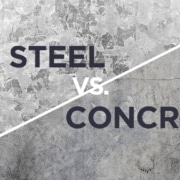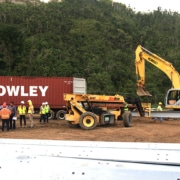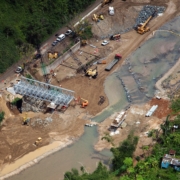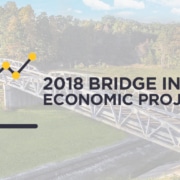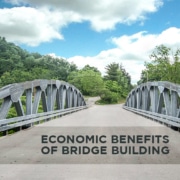Tips for Conflict Resolution in the Construction Industry
Unresolved conflicts in any workplace can cause a handful of lingering ill-effects such as poor morale, hostility, and inefficient work. The most effective way to handle a dispute is by being prepared with a response plan. To help we’ve compiled a list of tips for conflict resolution in the construction industry.
Addressing the Conflict
Whether passive or combative, allowing conflict to linger is deadly for workplace morale and productivity. Disagreements can easily occur in projects between crew members within a team, supervisors, suppliers, or contractors. Your first step should be to address the conflict head-on as quickly as possible with all the parties involved. The most effective way to do this is by understanding the underlying points of the situation.
Arguments are often due to misunderstandings between parties caused by poor communication or by different interpretations of the project. Sometimes the wrong materials are delivered, equipment is damaged, or a crew member isn’t abiding by company rules. This can delay productivity and jeopardize the project.
As construction sites are already a stressful environment, you might have to calm everyone down before you can get them to calmly discuss what happened. Building a timeline and talking to others helps ensure that there isn’t another underlying cause that you’ve missed that could arise again later.
Then, once you’ve identified every individual involved and their point of view you can then begin to determine how everyone arrived at their current state.
In some instances, it is easier to keep the dispute contained, however, if the issue is more pervasive it may need to be addressed at a larger scale, for instance, throughout an entire department.
Developing a Resolution
A strong conflict resolution ensures that everyone impacted understands the decision initiated. When developing a conflict resolution on construction sites, or really in general, chances are not everyone will be thrilled with the final result. Demonstrating competence, fairness, and respect for the project and all its stakeholders will encourage others to feel confident in your decisions.
By this point, you’ve already identified the root cause. Most likely your project is comprised of various team members, so you want to build a compromise that will salvage your relationship.
But don’t just focus on the people, instead, look at the problem itself. Consider what is important vs. what is urgent for the matter at hand and the project overall. An acceptable solution often requires both disputants to compromise.
Be clear in your delivery. It’s vital that everyone understands what to expect moving forward. Once a decision is made, offer a rationalization and a follow-up to make it easier for others to accept.
Consider Proactive Measures
You don’t have to wait until after a confrontation to start thinking about how to stop fights. Businesses can take proactive steps to avoid conflicts by building teamwork and enrolling their crew in conflict resolution training. Although this may seem more costly and time-consuming in the beginning, it does save crew time, money, and face by being able to avoid conflict before it even begins. Not to mention, it leaves a better impression on others.
In the end, conflicts are going to happen in any workplace. What’s important is how you react to them. The best way to keep productivity, employee morale, and overall job satisfaction up is through a well-established plan.
Success with U.S. Bridge
When it comes to your construction project you only want the best. Our 80+ years working with various companies all across the world has provided us with the skills and experience needed for even the most challenging projects.
At U.S. Bridge, we serve to meet the needs of our customers and the industry with our high-quality materials and skills.
Interested in starting your project with us? Contact us for a free quote or check our exclusive Bridge Scope tool to start building your project today.


